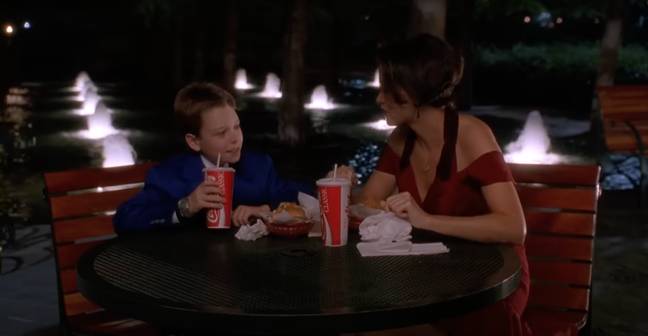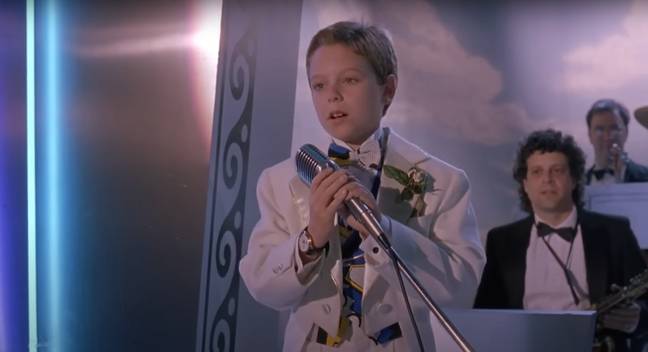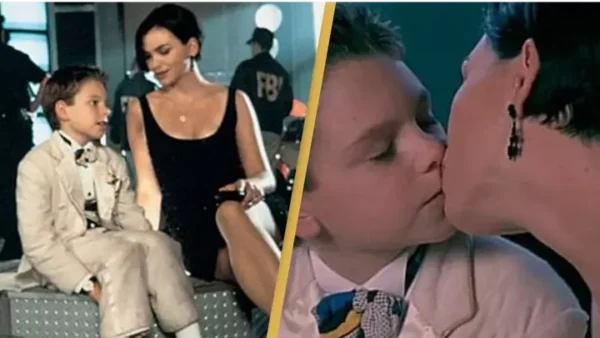The lead actor from movie Blank Check has responded to calls for the movie to be removed from streaming platforms.
Released in 1994, the movie follows an 11-year-old boy played by Brian Bonsall who inherits a blank cheque and uses it to buy houses under different names.
Part of the plot involved the 11-year-old appearing to be in a romantic relationship with a grown woman, something which audiences are now calling out as completely inappropriate.
One scene even sees the bank teller/FBI agent played by Karen Duffy, who was 31 at the time, kissing him on the lips and telling him she will go on a date with him in six years.
But even then that would make him just 17 years old.
Yikes.
Star Brian Bonsall, who played the title character Preston Waters, has now responded to calls.

In a post on Facebook, he wrote: “I had an absolute blast filming this movie! Everyone was a joy to work with and it’s awesome to see so many people still enjoy it!”
The scene has drawn a lot of attention, with people expressing their disapproval on social media.
One person wrote: “As I continue to rewatch movies from my childhood, I find myself constantly thinking, ‘ohh, that wouldn’t fly today’.”
Another posted: “Was not just flirting she kissed the kid too I always said wrong that’s not right.”
A third said: “It’s sooo bad, used to be one of my favorite movies when I was a kid.”
Others didn’t share this view, putting out various iterations of ‘it was a different time’.
One posted: “Oh for god sake, leave this film alone. Not everything needs to be reassessed through a modern lense.”
Another wrote: “Stop taking our childhood away from us. It was a different time. Don’t like it, don’t watch it.”

It’s not the fist time that Disney has had to contend with some of its earlier movies which let’s just say have not aged well.
Many movies now carry warnings about things such as racial caricatures and slurs.
However, one movie has been categorically stated as being barred from streaming platforms and the parks by Bob Igor himself.
This is Song of the South, set in the post-slavery reconstruction period, and criticised as glorifying and romanticising the lives of Black people living in the southern states after slavery was abolished.
